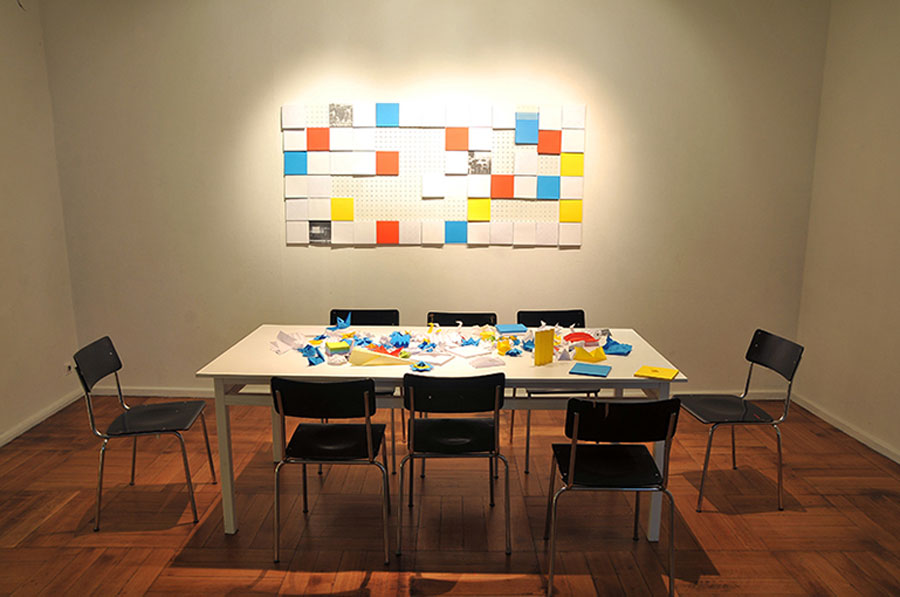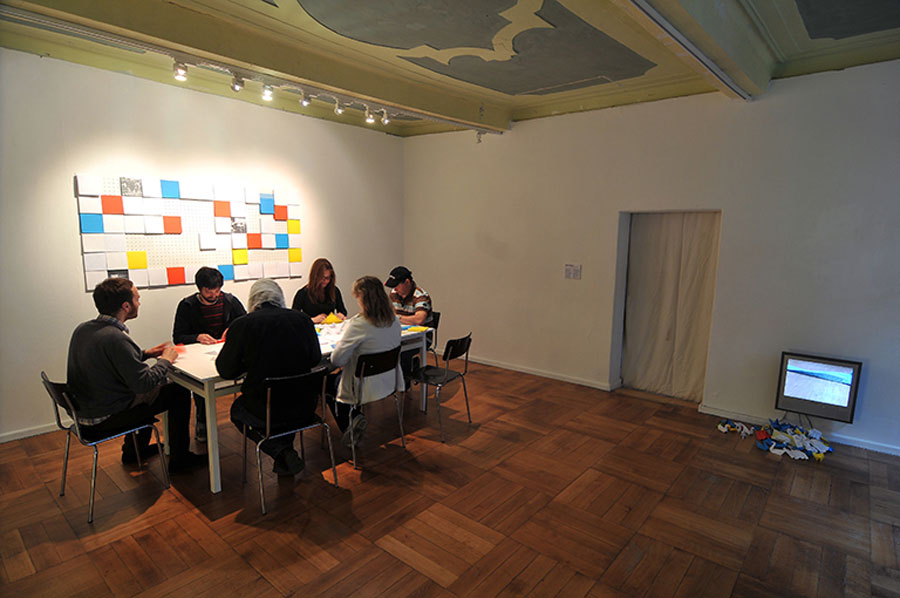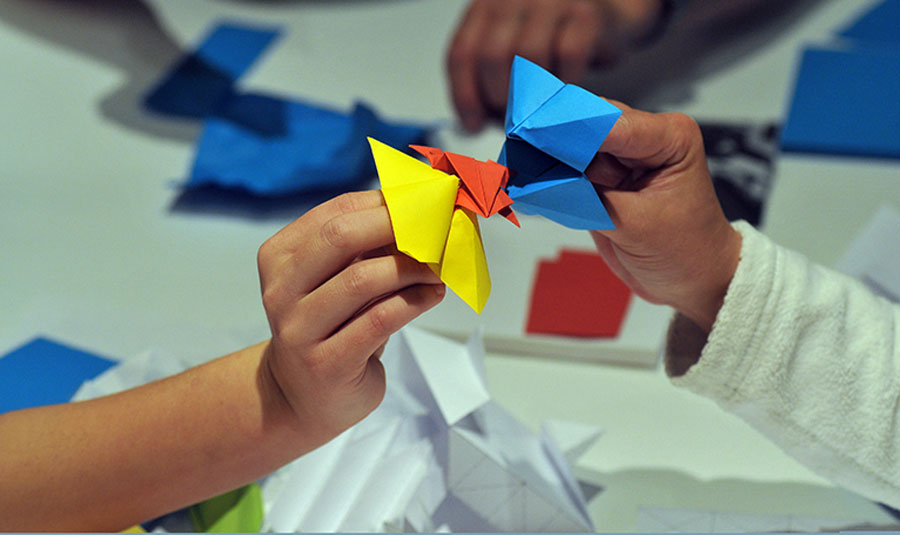Après la ACC Galerie de Weimar, c’est la Halle 14 de Leipzig qui accueille l’exposition « Über den Dilettantismus | On Dilettantism », conçue par Frank Motz. Elenni Kamma y participe et y montre l’installation « En Parergo I (a bywork for Weimar) », 2012, conçue pour l’occasion.
The meaning of “dilettante” has undergone significant change over the centuries. Originally it described an untrained artist, a lover of the fine arts or a scientific amateur, who passionately, albeit inexpertly, pursued an interest for pleasure (from the Latin delectare = to please). Nowadays, its meaning is far less flattering, namely that of a “layperson” or – even worse – a clumsy boor.
However, the arts would not be as rife with ideas and discoveries if it were not for these amateurish, unstudied and autodidactic contributions. One need only to think of concrete poetry and music, Dada, punk and the Fluxus movement. This exhibition invites artists to play with the idea of dilettantism or dabble in a field in which they possess no expertise whatsoever. The curators hope to illustrate the possibilities and liberties of dilettantish approaches, especially when it comes to gaining new insights and experiences or unusual perspectives.
The event series Dilettante-Stadl will invite researchers, artists and art collectors, e.g. the collector Harald Falckenberg and the artist Mark Dion, who regard dilettantism as a central working method.Artistic director: Frank Motz, Artists: Bernard Akoi-Jackson (GH), Hagen Betzwieser (GER), Ian Bourn (UK), Jeannette Chavez (CU), Mark Dion (US), Anna Gierster (GER), Kel Glaister (AU), Karl-Hans Janke (GER), Eleni Kamma (GR), Adam Knight (UK), Simone Bogner (GER), Paul Etienne Lincoln (UK), Laure Prouvost (FR), Rory Macbeth (UK), Per Olaf Schmidt (GER), Peter Haakon Thompson (US), Thomas Tudoux (FR), Nomeda & Gediminas Urbonas (LT/US) and others
Leipzig, Halle 14, 15 Sept. – 9 Dec. 2012
Eleni Kamma, En Parergo I (a bywork for Weimar), 2012
En Parergo I (a bywork for Weimar) displays reproductions of images linked to the history of paper folding and at the same time invites people to actively participate in the folding experience themselves. It consists of a table around which people may gather and fold paper, as well as a board placed on the wall opposite the table. The board is entirely covered by origami post-it paper blocks that serve both as a visual installation, as folding material and as carriers of information. On the opening night and once a week during the exhibition, there will be paper-folding gatherings.
Although En Parergo I (a bywork for Weimar) follows the discussion of amateurism versus professionalism through a close look into educational systems and the activity of folding, it has no intention of being didactic. The knowledge of paper folding belongs to everyone and to no one at the same time. Its origin arouses much speculation, touching questions of authorship that extend national borders. The activity of folding is at the same time a spatial as well as sculptural act. The form of the installation will develop and take shape according to the desire of the visitors to take out papers from the board, fold them and transform them into ephemeral sculptures during the exhibition. En Parergo I (a bywork for Weimar) is an attempt to put on the table questions that concern notions of community, sharing and common place. Perhaps the traces and left overs from this activity may provide us with some answers.
Eleni Kammas künstlerische Praxis dreht sich um Leerstellen und Widersprüche innerhalb kultureller Geschichtsschreibungen. Indem sie selbst auf Klassifizierungen, Taxonomien und bestimmte Darstellungsmuster zurückgreift, beleuchtet sie die Rolle von Klischees und Stereotypen bei der Ausbildung von Sinn und historischem Bewusstsein. Neuere Arbeiten fokussieren auf die Koexistenz von Wort und Bild und erzeugen neue Bedeutungen, indem sie diese scheinbar kollabieren lassen. Mit «En Parergo I (a bywork for Weimar)» präsentiert Kamma einen visuellen Kosmos, der mit der Geschichte des Papierfaltens verbunden ist und lädt die Besucher ein, sich selbst in dieser Kunst zu versuchen. Deren Ursprünge sind vielfach mit Spekulationen verbunden, wobei Fragen der Autorschaft über nationale Grenzen hinaus berührt werden. Der 1989 in Bayern gegründete Verein «Origami Deutschland» verfolgt eine Bildungstradition, die bis in die Zeit des Schuldpädagogen Friedrich Fröbel (1782 – 1852) reicht. Dieser führte Origami als Teil eines ganzheitlichen Lernens ein und wurde u. a. zur -Inspirationsquelle für die Bauhausbewegung. Zwischen ephemerer Installation, Informations- und Ausbildungsstätte greift Kammas Projekt das Thema «Dilettantismus versus Professionalität» auf. Die Tätigkeit des Faltens sei gleichermaßen ein räumlicher wie skulpturaler Akt, so wird sich die Installation aus dem Umgang der Besucher mit dem angebotenen Material heraus entwickeln und kontinuierlich ihre Form verändern


